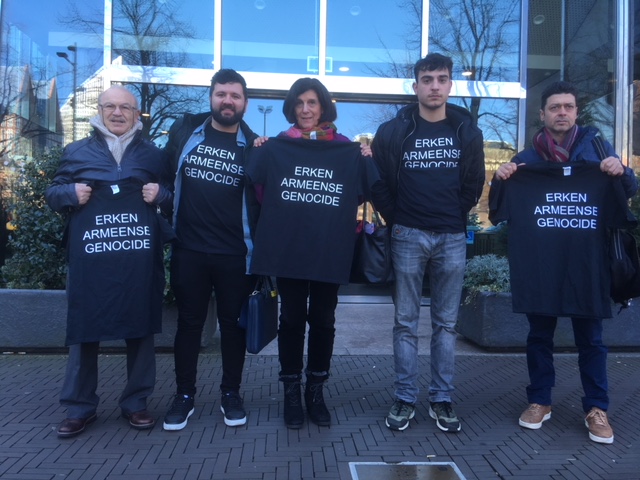By Haykaram Nahapetyan
Mirror-Spectator Video Correspondent
THE HAGUE – With 142 to 3 votes the Tweede Kamer or lower house of the parliament of the Netherlands adopted two motions on the Armenian Genocide on February 22. The initiative came from MP Joël Voordewind of ChristenUnie [Christian Union]. The first motion explicitly recognizes the Armenian Genocide and additionally mentions that “for the sake of completeness it also concerns the Assyrians, the Pontic Greeks and Arameans who have also been the victims of this genocide.”
The other motion asks the government to send a minister to Yerevan this year, and every lustrum (every five years, with the following time in 2020, then 2025, etc.), to attend the commemoration ceremonies of the Armenian Genocide there on April 24.
According to FAON, the Federation of Armenian Organizations in Netherlands, the three deputies that voted against these resolutions are of Turkish origin and belong to a party largely affiliated with Dutch Turks.
MP Raymond de Roon (Freedom Party) also filed a motion, stating that the government should no longer speak of “issue of the Armenian genocide” but precisely of the “Armenian genocide”. This motion did not pass because the coalition parties voted against it, as did PvdA (the Labor Party) and Denk (the Dutch-Turkish party).








